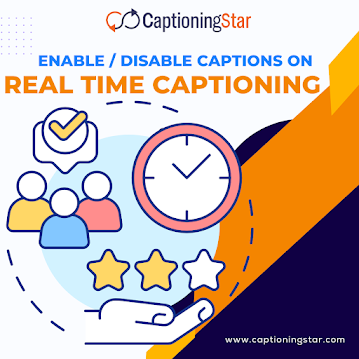Enhancing Museum Experience: The Role of Accessibility Services by CaptioningStar
In recent years, museums worldwide have been striving to make their exhibits and collections accessible to all visitors, including those with disabilities. CaptioningStar, a leading provider of accessibility services, plays a crucial role in this endeavor by offering solutions that enhance the museum experience for diverse audiences. Here, we explore the significance of museum accessibility services and how CaptioningStar contributes to making cultural institutions more inclusive.
1. Captioning for Deaf and Hard of Hearing Visitors
CaptioningStar's expertise in providing high-quality captions ensures that deaf and hard of hearing visitors can fully engage with museum exhibitions. By accurately transcribing spoken content and providing on-screen captions, museums can make audiovisual materials accessible to this audience, enhancing their understanding and enjoyment of the exhibits.
2. Audio Description for Visually Impaired Visitors
For visually impaired individuals, accessing visual content in museums can be challenging. CaptioningStar offers audio description services that provide detailed narration of visual elements, enabling these visitors to form a mental image of the exhibits. By incorporating audio descriptions into multimedia presentations and guided tours, museums create a more inclusive environment for all patrons.
3. Multilingual Accessibility Services
Museums attract visitors from diverse linguistic backgrounds, and providing multilingual support is essential for ensuring inclusivity. CaptioningStar's multilingual captioning and translation services enable museums to offer exhibit information and audiovisual content in multiple languages. This facilitates greater accessibility for international visitors and non-native speakers, enhancing their overall museum experience.
4. Accessible Digital Exhibits
In today's digital age, many museums offer online exhibits and virtual tours to reach a broader audience. CaptioningStar helps museums make their digital content accessible by providing closed captions, transcripts, and audio descriptions for videos and interactive displays. By ensuring that online exhibits are inclusive, museums can extend their reach and impact beyond physical boundaries.
5. Consultation and Training Services
CaptioningStar goes beyond providing accessibility solutions; they also offer consultation and training services to help museums implement best practices for accessibility. From advising on inclusive design principles to training staff on interacting with visitors with disabilities, CaptioningStar supports museums in creating welcoming environments where everyone can fully participate and enjoy the cultural offerings.
In conclusion, museum accessibility services, facilitated by companies like CaptioningStar, play a vital role in ensuring that cultural institutions are accessible to all individuals, regardless of their abilities or backgrounds. By embracing accessibility initiatives, museums not only comply with legal requirements but also fulfill their mission of fostering cultural enrichment and education for everyone in society.



Comments
Post a Comment